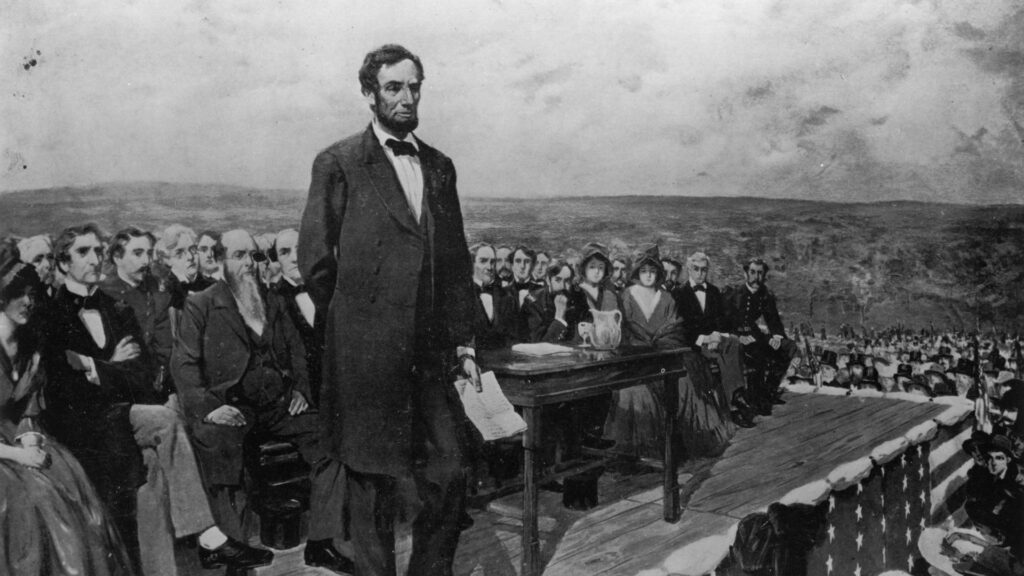On 19 November 1863, U.S. President Abraham Lincoln delivered the Gettysburg Address, one of the most iconic speeches in American history, at the dedication of the national cemetery in Gettysburg, Pennsylvania. The speech followed the Battle of Gettysburg, a turning point in the American Civil War, where Union forces had secured a hard-fought victory. Lincoln’s brief yet profound address honoured the fallen soldiers and underscored the broader significance of the conflict.
In just 272 words, Lincoln redefined the war’s purpose, emphasising equality and the enduring principles of democracy. He began with the now-famous phrase, “Four score and seven years ago,” referencing the Declaration of Independence in 1776 and its assertion that all men are created equal. This theme of equality was central to Lincoln’s message, as he reaffirmed the nation’s founding belief that liberty and equality should be universal rights. At a time when the country was divided by slavery and war, Lincoln’s words served as a reminder that the sacrifices of the soldiers at Gettysburg were made to protect and extend this principle to all.

Lincoln concluded with a powerful vision for the future: “That government of the people, by the people, for the people, shall not perish from the earth.” This line not only underscored the democratic ideals of the United States but also pointed to a future where equality would triumph over division. The Gettysburg Address, though initially met with mixed reactions, has endured as a timeless statement of hope, resilience, and the pursuit of equality. It remains a reminder that the ideals of freedom and equality must continue to guide nations and inspire progress.
Also read: ON THIS DAY: Adolf Hitler Leads the Beer Hall Putsch (1923)


